Last year, South Africa’s gambling industry generated R47.2-billion in revenue, the highest amount ever recorded. This record growth is being driven largely by online betting, which accounted for more than half the revenue, according to the National Gambling Board’s most recent annual report.
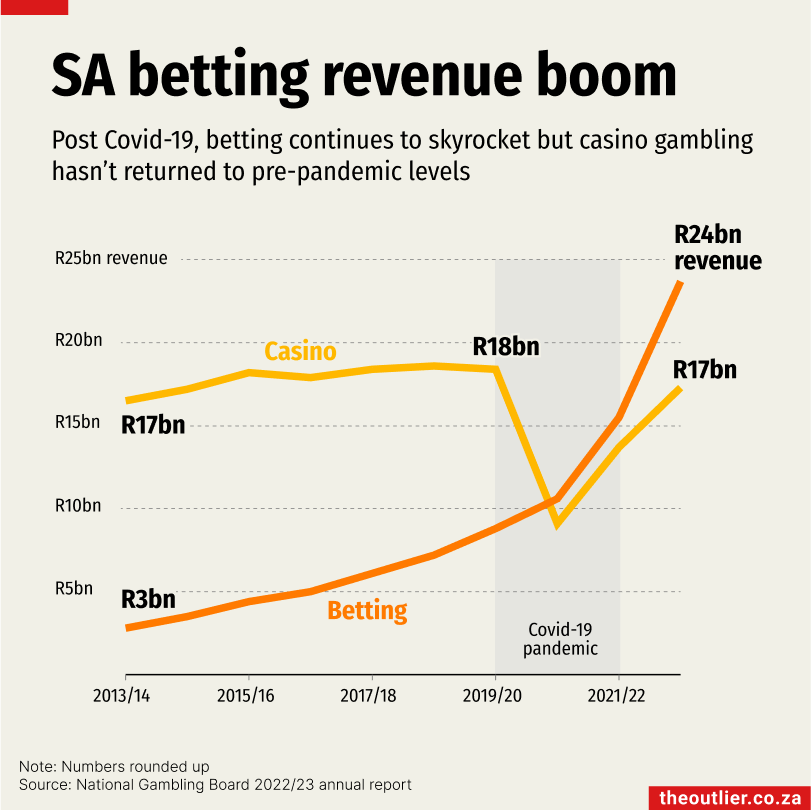
South Africans placed R418-billion worth of bets last year, an 80% increase from the R233-billion in 2021/22. Betting involves placing a wager through bookmakers like EasyPlay or Yesplay on the outcome of a specific event, usually a sports event, and can be done both in person or online.
In South Africa, about 80% of sports betting is done online, with wagers made with just a couple of clicks on a computer or mobile device. The total value of bets is significantly higher than overall revenue because winnings are often ‘recycled’ to place further bets.
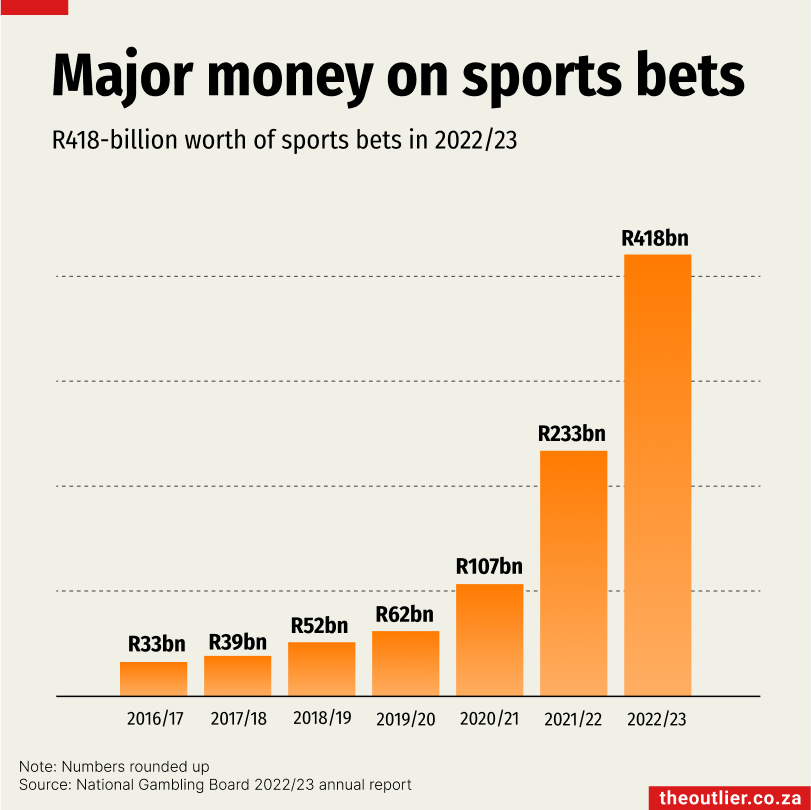
This shift to online betting and gambling over the past few years has been significant. The dramatic increase was triggered by the Covid-related shutdowns. While gambling and betting revenue has been growing rapidly, the share generated by casinos has been in sharp decline. Casinos accounted for 37% of total gambling revenue in 2022/23, down from 84% in 2010.
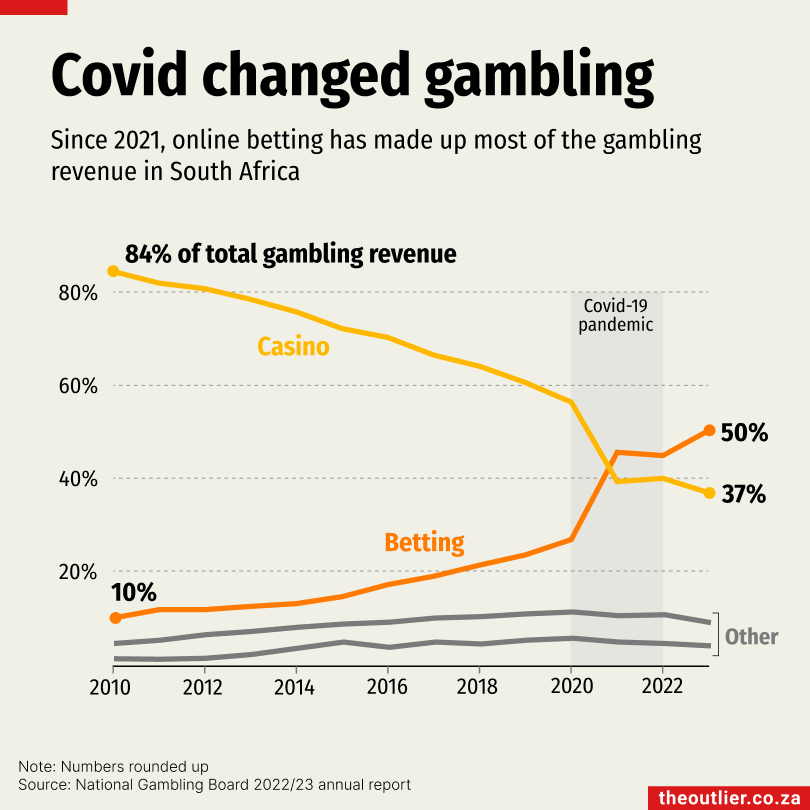
Wider access to the internet and the increase in the number of smartphones means gamblers no longer have to rely on physical outlets, says the National Gambling Board’s Keletso Makopo.
Well-known gambling companies like Betway and Hollywoodbets dominate online betting – as well as advertising and sports sponsorship. Newcomer SuperSportBet, the result of a partnership between Nigerian betting company KingMakers and MultiChoice, launched in January and is specifically targeting sports fans.
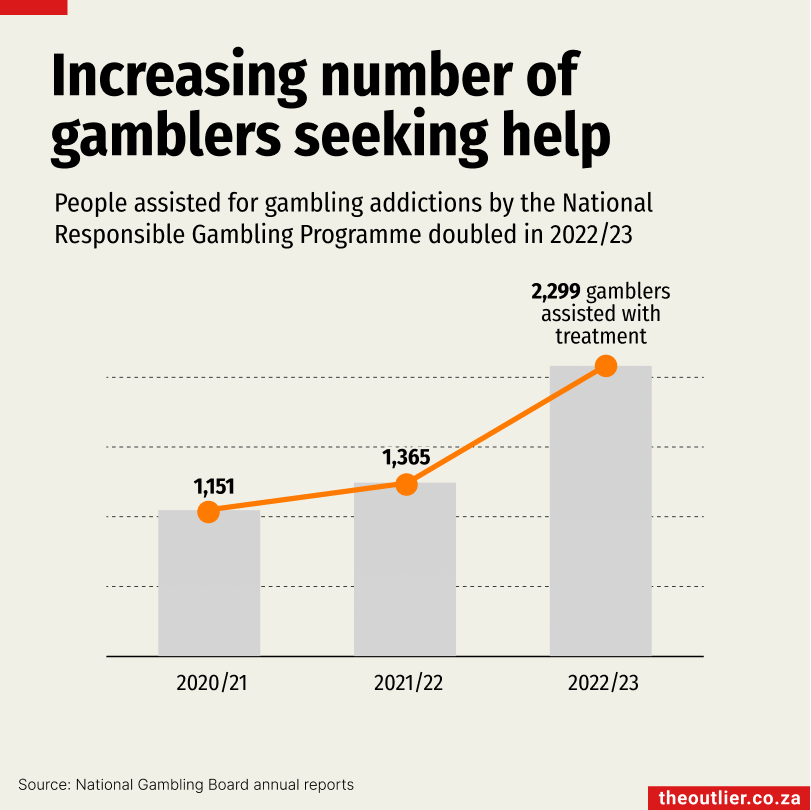
Gambling problems
Online gambling is also drawing in new, younger audiences, attracted by the excitement of risk and prospect of quick gains. More than half of the young adults (those between 18 and 34) surveyed by InfoQuest as part of a recent study on gambling trends said they gambled because they needed money.
Just under 10% said they gambled because they were depressed, addicted or needed to escape from reality. Almost 40% used their winnings to gamble again.
Among those surveyed, sports betting was the most-often-placed bet, with an average incidence of 12 times a month. Playing casino tables and slot machines had the lowest incidence, at seven and five times a month respectively.
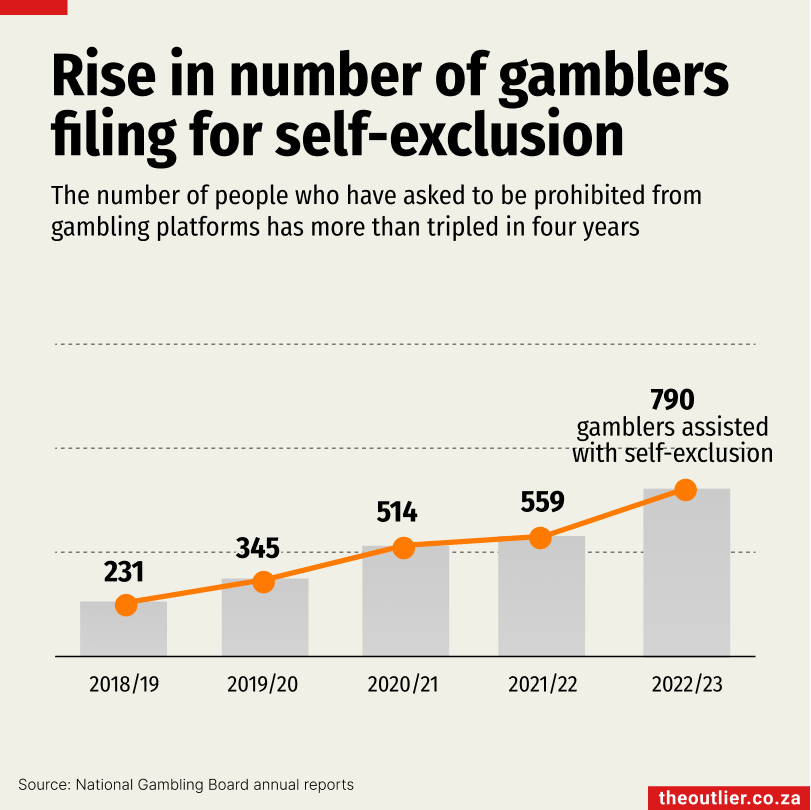
There’s a concomitant rise in gambling addiction, with the number of people referred by the Responsible Gambling programme for treatment doubling to 2,299 in 2022/23 after a Covid-19 lull. Most of these were in the 25-to-35-year age group.
The number of people who formally request to be banned by gambling venues or online sites has rocketed by more than 240% in the past four years, according to data from the gambling board.
Maggie, a recovered gambling addict who now helps others, calls online betting the silent killer, with many ‘serial betters’ dying of suicide. ‘It’s a real crisis right now and it’s hitting the people who are already battling,’ she says.
Notebook
- The SA Responsible Gambling Foundation offers 24/7 support on 0800 006 008 or helpline@responsiblegambling.org.za
